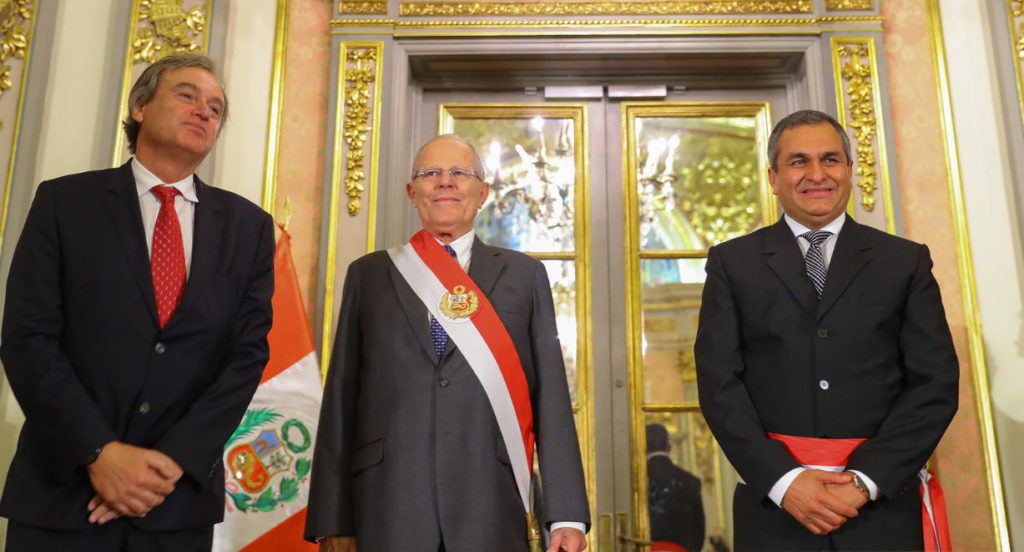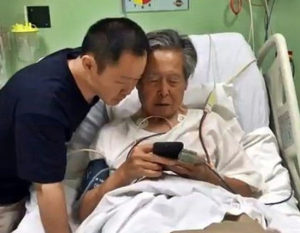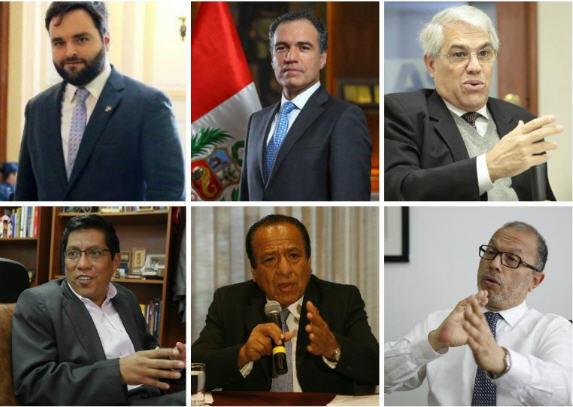
President Pedro Pablo Kuczynski yesterday swore in his new minister of the Interior, Vicente Romero, the first of several new ministers expected to be appointed over the next few days as the President shapes what he is describing as a “reconciliation cabinet.”
The need for a cabinet shuffle comes in the wake of resignations after the President announced his decision on Christmas Eve to pardon ex- President Alberto Fujimori, although some cabinet members were already uncomfortable with the President’s defense in Congress last week against being impeached for allegedly lying about private earnings while serving in the Toledo administration 12 years ago.
Fujimori’s pardon has been granted on humanitarian grounds, which critics reject. The United Nations, Amnesty International, Washington on Latin America, and the Inter-American Court of Human Rights have expressed concern, and the Inter-American Court has set Feb. 2 to review the cases of the La Cantuta and Barrios Altos murders that led to Fujimori’s conviction in 2007 of crimes against humanity.
The former president is serving a 25-year sentence for crimes against humanity. He has been ill from a non-malignant tumor in the mouth and suffering from depression on and off for several years but his condition is not life-threatening. Also, he has been housed in 800 m2 of comfortable private quarters at Diroes, the police special operations barracks in east Lima, and has unlimited visitor privileges.

He is currently in a private clinic but has been released from the intensive care unit, and is expected to be released within the next few days.
The pardon was bound to be rejected not only by many in the general public but also by legal analysts and human rights organizations — Fujimori was convicted in a trial that was recognized internationally as impartial, and a pardon would only apply if he were terminally ill. Additionally, the pardon exempts Alberto Fujimori from any further trials, including the current case before the courts of the murder in 1992 by the Colina death squad of six men in the farming community of Pativilca, north of Lima.
But equally serious is the timing of the pardon — on Thursday, Dec. 21, the President was saved from a highly possible impeachment in Congress by 10 members of the Fuerza Popular party. Led by Kenji Fujimori, they broke ranks from the rush forced by their party and abstained from voting to oust the President.
Three days later, on Christmas Eve, President Kuczynski announced he was pardoning Alberto Fujimori.
The pardoning appeared to be as rushed as the impeachment process, which was rammed through in less than a week — it took 13 days between the request for pardon, the filing of a medical report, and the pardon itself.
“I think it was a negotiation,” says political analyst Mirko Lauer. “What we have is several scaled and simultaneous political moves. Why the impulse in favor of impeachment? My sensation is that the Odebrecht papers that incriminate PPK have been lying dormant for a year and a half.”
If the pardon was a negotiation, few in the government knew about it and the President himself denied the possibility only two days earlier to journalists Rosa Maria Palacios and Gustavo Gorriti and to politician and advisor Pedro Cateriano.

Resignations in the Government.
The new Interior minister is the former director of the National Police force and succeeds Carlos Basombrio, with whom he worked closely over the past 18 months. Basombrio, who has led an effective campaign to lower crime rates in drug-related professional hitmen gangs and extorsion gangs, had tendered his resignation last week prior to the impeachment process.
The President has also lost three of his own party’s members in Congress — Victor Zeballos, Gino Costa and Manuel de Belaunde, who resigned and will remain as independent lawmakers.
Other resignations this week —and directly related to the presidential pardon— have included that of the minister of Culture, Salvador del Solar; presidential advisor Maximo San Roman (who was Fujimori’s vice-president before the 1992 closing of Congress); several key officials in the Ministry of Interior, including the director general of Missing Persons and Forensic Investigations, the vice-minister of Public Safety, the director general of Human Rights, and three top officials on the commission for peace, reparation and reconciliation, which deals directly with relatives of victims of the 20-year Shining Path conflict, including during the 1990-2000 Fujimori administration.
TV Peru has also lost its executive president, Hugo Coya, journalist Josefina Townsend, and three anchors on different programs, including international analyst Farid Kahhat.





